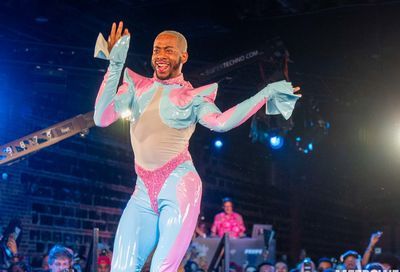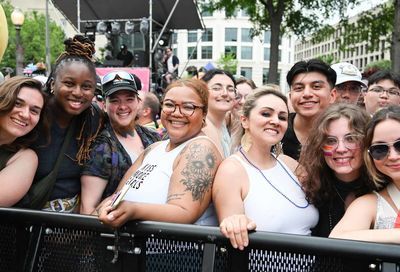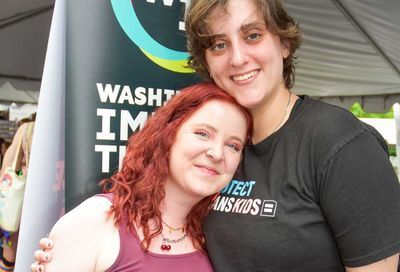Queer Campuses
Former GW dean takes issue with 'Advocate' guide's 'first and only' claim
Billing itself as ”the first and only guide for LGBT students and their families on finding the right college,” Alyson Books last month released The Advocate College Guide for LGBT Students. Of the district’s several colleges and universities, American University alone made the cut. George Mason University is the sole Virginia campus on this list of 100 gay-friendly campuses, while the University of Maryland is the sole entry from Maryland.
Advertisement
|
The book — following a process that saw more than 600 colleges and universities nominated for inclusion, that drew from more than 5,000 online interviews with GLBT students and campus faculty/staff — offers a list of 100 campuses deemed the best for gay students, while also singling out 20 for special distinction. AU earned a spot on the latter list, as well.
Jan-Mitchell Sherill, who until last June served as George Washington University’s associate dean of students, co-authored 1994’s The Gay, Lesbian and Bisexual Students’ Guide to Colleges, Universities, and Graduate Schools (New York University Press) with another former GW administrator, Craig Hardesty.
”In general, I’m really glad that The Advocate is doing this. I think it’s essential,” says Sherill. ”But it’s absolutely not the first. We had them beat by 12 years…. The last time I looked, Lambda Rising was still selling it.” Sherill adds that he’s surprised GW didn’t make the cut for this new guide.
For his ’94 guide, Sherill says he used a National Gay and Lesbian Task Force database of campus GLBT groups to solicit information about campuses, whether friendly or hostile to gay students. The new guide, on the other hand, has singled out a list of 100 schools that scored best on a list of GLBT-friendly criteria, such as whether the school recruits GLBT students or has a GLBT alumni association.
Bruce Steele, editor in chief at The Advocate — which falls under the same PlanetOut-corporate umbrella as Alyson Books — and who is fielding all queries about the new guide, says he’s unfamiliar with Sherill’s 1994 effort. Regardless, it’s time for a new survey, he says.
”The intention is to create a living document that can be updated and made useful,” says Steele, explaining that subsequent versions of the guide may be published regularly. ”It’s usefulness wanes rather quickly in that universities and colleges are constantly changing their policies. Policies have been updated since we put this to bed.”
Steele also says that readers of The Advocate College Guide should not interpret a school’s absence from that guide’s list as evidence that the school is somehow hostile to gay students.
”There are only 100 universities in the book. If you limit the list to 100, you’re inevitably going to leave out some,” says Steele. ”This was a subjective process, not an objective, scientific process in terms of who wound up in the book…. This is not the end all, be all college guide for gay students.”
Still, every bit of information helps, says Sherill, adding that he and other gay campus administrators have discussed how they can often pinpoint the semester a college student comes out, based on his transcripts and a telltale academic hiccup. Any tool a student has, like this new Advocate-endorsed guide, says Sherill, is important. ”The campus environment has an impact on a student’s academic career, depending on how out they are,” he says. ”Having ‘gay studies’ alone is not enough. What really makes the difference is the environment.”
Or, as an unnamed AU senior is quoted in The Advocate‘s new guide: ”The omnipresence of a large, out student population influences even straight students to be more tolerant and makes for an overall positive atmosphere.”
Support Metro Weekly’s Journalism
These are challenging times for news organizations. And yet it’s crucial we stay active and provide vital resources and information to both our local readers and the world. So won’t you please take a moment and consider supporting Metro Weekly with a membership? For as little as $5 a month, you can help ensure Metro Weekly magazine and MetroWeekly.com remain free, viable resources as we provide the best, most diverse, culturally-resonant LGBTQ coverage in both the D.C. region and around the world. Memberships come with exclusive perks and discounts, your own personal digital delivery of each week’s magazine (and an archive), access to our Member's Lounge when it launches this fall, and exclusive members-only items like Metro Weekly Membership Mugs and Tote Bags! Check out all our membership levels here and please join us today!





















